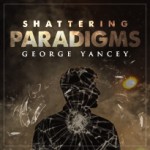I can honestly say that I am an expert on anti-Christian hostility in the United States. In fact, I can say that I am one of THE experts on anti-Christian hostility in the United States. That is not bragging, but merely a feature of being a professor who has chosen to study an area of our society that not many other professors care to study. Several years ago, I could accurately say that I was one of THE experts on multiracial churches for that very reason. Being such an expert is par for my profession. Most professors in the sciences at research universities can rightly claim to be an expert in what is usually a very narrow subject.
How I gained such an expertise is not a mystery to anyone well acquainted with social science research. I conducted research using well-known methodological techniques and published a variety of peer-reviewed academic articles and books. Over time, I developed a body of literature based on my findings from all that work. There is no magic to this. The methods I used are not different from the methods other social scientists used. The only real difference is the subject matter that I chose to apply the scientific method in order to have an expertise in that area. I am not claiming to be one of THE experts in sociological methodology that I have applied to research areas to which I have an expertise.
But while I am not a foremost expert on sociological methodology, I do have enough of an expertise to judge what is good sociological research. If I were given a Master thesis from an average sociological graduate student and a peer reviewed article from a highly regarded journal, I am fairly certain that I would be able to tell which is which. I am guessing that most individuals would not be able to tell the difference between the two. I have served as a referee on several sociological journals. This has honed my abilities so that I can generally tell the difference between a paper that belongs in an elite journal and one that is good enough to be published, but in a more moderately rated journal. That sort of distinction only comes from years of doing sociological research and reading extensively in the field.
So does this make me better than others? Of course not. It only means that in a limited way I can say I have an expertise that escapes the vast majority of individuals in society. But I am not an expert on everything. Indeed, sometimes experts get into trouble when they think that their expertise in one area makes them an expert in all areas. It does no such thing. For example, the other day I asked my wife, who used to be a high school English teacher, on how she distinguishes between good and bad fiction. The example I used was Twilight (bad fiction) and Harry Potter (good fiction). She told me about depth of character and plot. I tried to understand her criteria, but to be honest she has much more expertise as a high school English teacher to evaluate such things than I. She does not have to be one of THE experts on juvenile fiction to have superior expertise in this subject in comparison to me.
In my simple mind I choose the best fiction by what I like. My personal preference does not make my choices right in the eyes of experts. To be sure if we were trying to distinguish between fiction written by your average junior high school student and written by J. K. Rowling, then I would be able to tell them apart. But I do not have the expertise to determine if her writing is better than most other fiction. Likewise, in my previous example, if we were comparing a “research paper” from an average high school student and a peer reviewed article, then most individuals would be able to say which is which. Where you really need experts is when trying to decide which is better between papers of much closer, but still of varying, quality. Experts are in their element the most when attempting to determine the absolute best or finest of that which must be examined.
This is the same as we move beyond science and literature. How do we know who produces the best music? Years ago, I developed a friendship with a graduate student in the music program here at the University of North Texas (Which actually has one of the best music schools in the nation). She told me that the Philadelphia Orchestra is superior to the orchestra we have in Dallas. I accept her word on that, but I bet that if I listened to music by both orchestras, I would not be able to tell you which one is better beyond my personal preferences. I have to take her word for it that the orchestra in Philadelphia is better because I trust her expertise in judging music.
And that is a major point about experts. We often have to take their word that they know what they are talking about. Since none of us can be experts in everything, at some point we have to put our “faith” in an expert that what he or she is saying is accurate. We often use the reality that a person is an expert to bolster our arguments. Who has not heard that well over 90 percent of the experts believe in global warming? That is not an argument that the debater personally know that the earth is getting warm. It is an argument that the experts have told us that the earth is getting warm and that we need to listen to these experts. I am not trying to start a debate on global warming. I am just pointing out that in our public debates about global warming that few of us are really equipped to understand the arguments since we do not have an expertise in the science behind the theory of global warming.
The level of inadequacy that most Americans have to engage in scientific debates was driven home to me a few years ago due to the controversial article by Mark Regnerus. He found evidence with a probability sample that being raised in a same sex household can be correlated with negative outcomes. As someone with knowledge of how social science is done, I wrote a blog defending his work from some of the outlandish charges. While there are legitimate concerns about the research, as no social science research is perfect, many of the claims were laughable and indicated a lack of knowledge of how the social sciences work. I found myself dealing with arguments that were either unsound or relied on claims made by social science experts.
I have no interest in addressing those arguments here, and I am going to remove any attempt in the comments to stir up this issue again (in large part because most of the people who comment have no idea what they are talking about and are merely parroting talking points), but my argument is that many people wanted Regnerus’ research to be wrong and thus sought out the experts who would support their point of view. They did not actually know whether it was wrong, and they did not have the expertise to judge it for themselves. But with their desire for this research to be wrong, they merely found some expert who told them what they wanted to hear. Once they found those experts, they could reject his work. Ironically they could do so because they did not have the expertise to assess whether the expert was on solid footing in his or her critique of Regnerus. So it is not only that we have to rely on experts for subjects that we do not know much about, but we also tend to select experts that tell us what we want to hear.
This brings up another important implication about our reliance on experts, which is that most of the time experts are not relying on an objective standard of truth. This is not like acknowledging that Usain Bolt is the fastest runner of all time because we have objective measure of time to compare him to everyone else. If we look carefully at the areas where we rely on experts, we usually will find that most of the time they must make a subjective assessment of what is good and what is not.
This is very clear if we are talking about the arts, literature or some other humanities. But this is also true when we talk about science. Even a part of science that seems technical such as statistics is vulnerable to subjective assessment. For example, in social science literature, if we are 95 percent certain that the finding in our sample would be found in our general population, we say that this finding is significant. But if we are only 94 percent confident of our findings, then it is not significant. Why is that one percentage point important? There must be a history to that question which I am not aware of, but I suspect that it is important because at some point an influential scholar decided that 95 percent certainty is a bright line for determining significance. Good luck trying to publish a finding where you have only calculated 94 percent certainty. You will only likely be able to do so under special circumstances.
Thus even in statistics, there are subjective assessments that must be made by the experts in the field. It would be nice if we could rely on experts who have a level of expertise based on pure objective assessment, but that is not reality. In reality we are relying on experts who use their own subjective judgment to come to their conclusions.
The entire notion of experts has been something that I have kicked around in my mind for quite some time. Clearly we must rely upon them. There is no shame in that. But, we often do not question them unless they advocate something we do not support. We seldom question experts who support ideas that we like. Perhaps those are the experts we should question the most. On issues about which we have no emotional investment, we also tend to believe whatever the expert has told us with very little question.
Perhaps at this point, my message is that we should be willing to be more critical of experts, even as we acknowledge that we do not have time to challenge them all the time. If literary experts tell me that Shakespeare is a better writer than Milton, then I am probably not going to put forth the energy to challenge that claim. I simply do not have the time to become enough of an expert in literature to engage in such a debate. But if experts start telling me that Christianity has been a major source of violence, then I would do well to listen to their arguments to see if their argument holds weight. This does not mean that I have to automatically believe those experts, but if I want to make sure that I do not only listen to those experts who affirm what I already believe, then I have to be willing to consider contradicting evidence. Our society would be much better if we can put the expert in the proper place. An expert should be someone to listen to when talking about their area of expertise, but not someone who is above critique. And we would also be better served if we recognize that we will tend to take the arguments of experts with a certain degree of faith, but that is all right as long as we do not forget that it is faith and that experts are not infallible.












